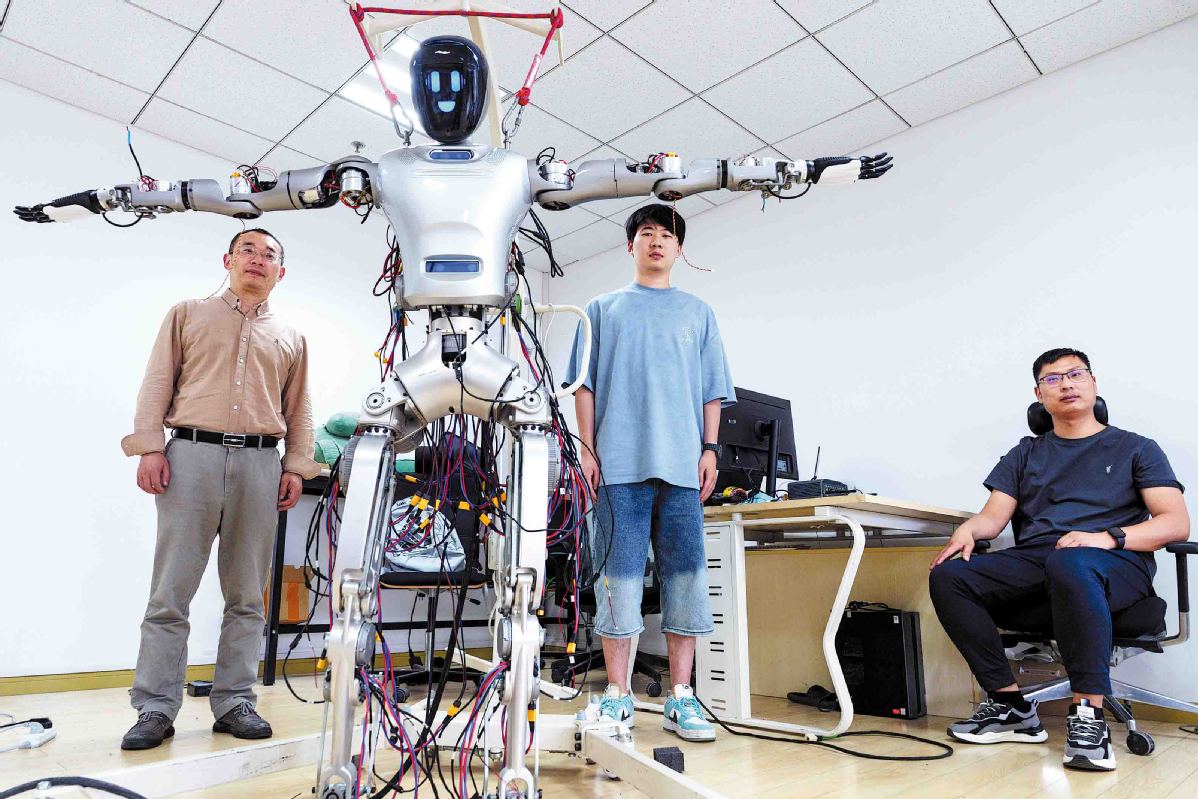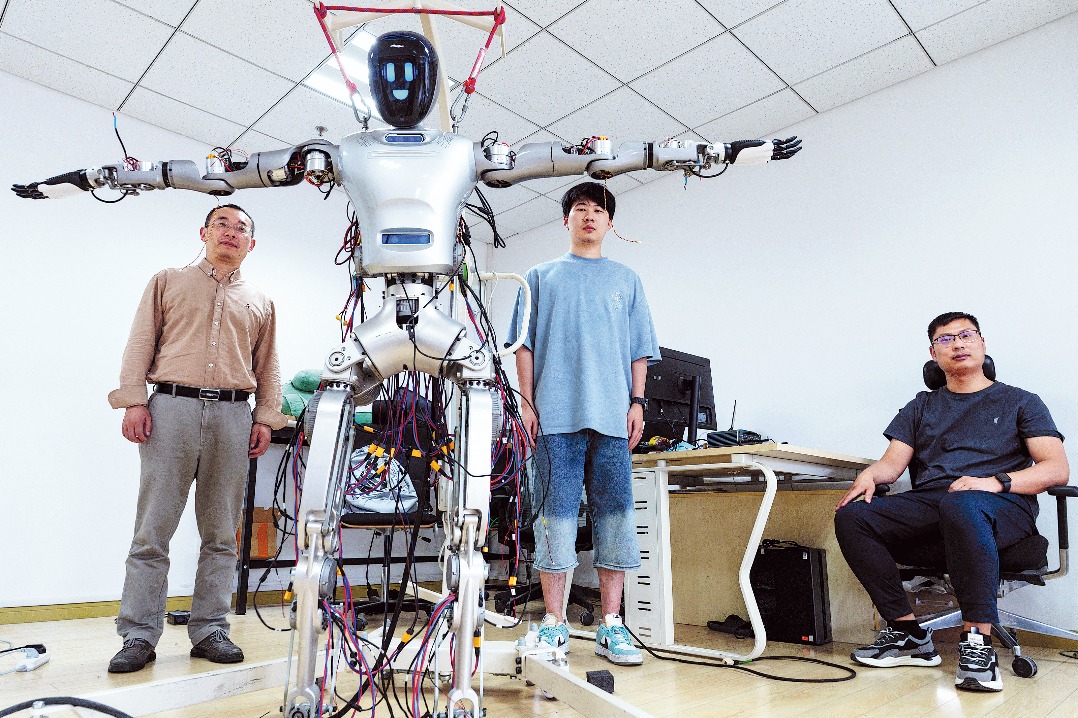'Sympathetic' humanoids at vanguard of robot solutions to elderly care
Intelligent self-driving wheelchairs, automated exoskeletons will assist aging population, experts say


In the not too distant future, humanoid robots will not only be able to perform caregiver tasks for the elderly, such as pushing them in a wheelchair, but also react to them with a range of sympathetic "emotions", according to a leading developer.
Liu Lizheng, head of humanoid robot projects at Shanghai's Fudan University, said he believes that from a technical point of view these functions will be achieved in three to five years.
"In order for the elderly to accept being cared for by robots, they must be not only intelligent enough in fulfilling tasks, but also interactive in emotional aspects, so elderly users feel a sense of warmth and companionship akin to that of a loved one," said Liu.
The Guanghua No 1 humanoid robot developed by his team is currently undergoing iterative software development and is set to make its debut at a top-tier hospital in Shanghai before the end of this year. The robot will demonstrate its application in elderly healthcare scenarios, Liu said.
The team's goal is to develop the robot into a highly secure, learning-capable one that takes the initiative in recognizing different scenarios when looking after an elderly person. The ultimate objective is to replace the role of a human in around-the-clock caregiving.
At the International Exhibition of Senior Care, Rehabilitation Medicine and Healthcare Shanghai 2025 held in the city from June 11 to 13, over 500 domestic and foreign enterprises showcased their latest elderly care products, including exoskeleton robots and intelligent self-driving wheelchairs. Industry insiders described the development of caregiver robots as the start of an "explosive era" in the sector.
"These innovations mark three key shifts in China's silver economy: from functional substitution to human-machine integration in technology, from passive adaptation to active empowerment in product design, and from single care to a full scenario quality of life enhancement in service ecosystems," said Ma Zhiwen, assistant general manager of Shanghai International Exhibition (Group) Co, a co-organizer of the exhibition.























